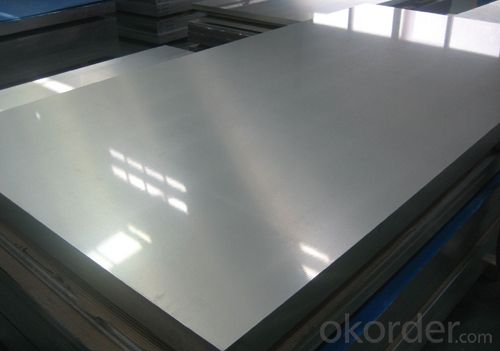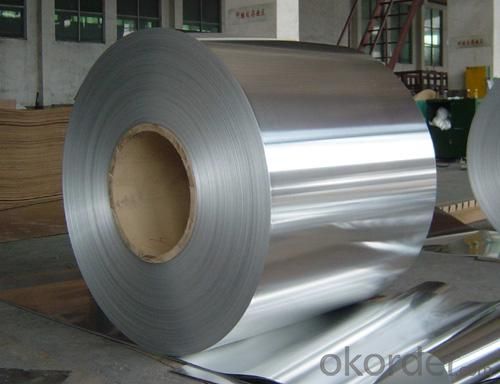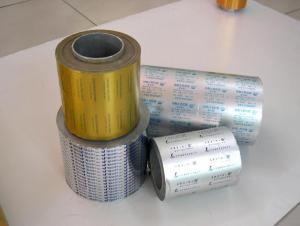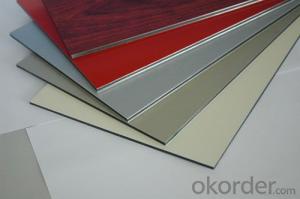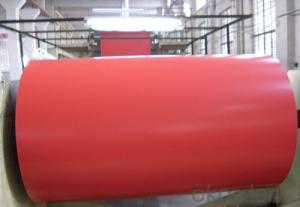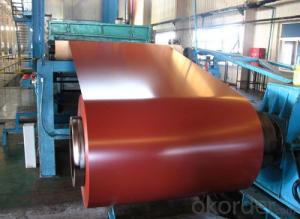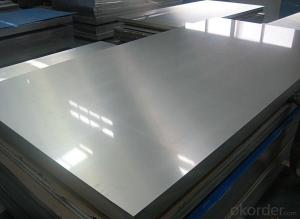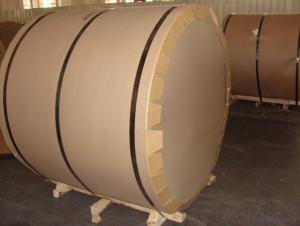Hvac Coating Aluminum Coils - Aluminium Coil Sheet for Building Use in Different Alloys
- Loading Port:
- Shanghai
- Payment Terms:
- TT OR LC
- Min Order Qty:
- 20 m.t
- Supply Capability:
- 10000 m.t/month
OKorder Service Pledge
OKorder Financial Service
You Might Also Like
Specification
1. Specification of Aluminum
1) Alloy | 1050, 1060,1100, 3003 3004 3105 3005 5005 5052 etc |
2) Temper | O/H12/H14/H1/H18/H32/H34/H36/H38//H111/H112/H116/H321/T6/T651/T3/T351 etc |
3) Thickness | 0.1mm to 6mm |
4) Width | 20mm to 3300mm |
5) Coil weight | 100kgs to 6 tons depends on actual requirement |
6) Core material | Aluminum alloy |
7) Coil Inner diameter | 76mm, 152mm,or as required |
2. Application of Aluminum
Every Owens Corning roof shingle features:
A Fiberglass mat for weather protection and longer life
Colorful mineral granules that reflect the sun's rays and add beauty to the roof
Weathering-grade asphalt that holds the granules on the shingle and waterproofs the roof
The highest fire protection rating for residential applications
Wind resistance for gusts up to 110 mph
Limited product warranties ranging from 20 to 50 years
3. Feature of Aluminum
In 1954, there were 75 registered aluminum alloys. Today, there are more than 530 registered active compositions and that number continues to grow. That underscores how versatile and ubiquitous aluminum has become in our modern world. So what are aluminum alloys and why are they important?
4. Certificate:
SGS and ROHS(if client request, paid by client), MTC(plant provided), Certificate of Origin(FORM A, FORM E, CO), Bureau Veritas and SGS (if client request, paid by client), CIQS certificate
5. Image of Aluminum
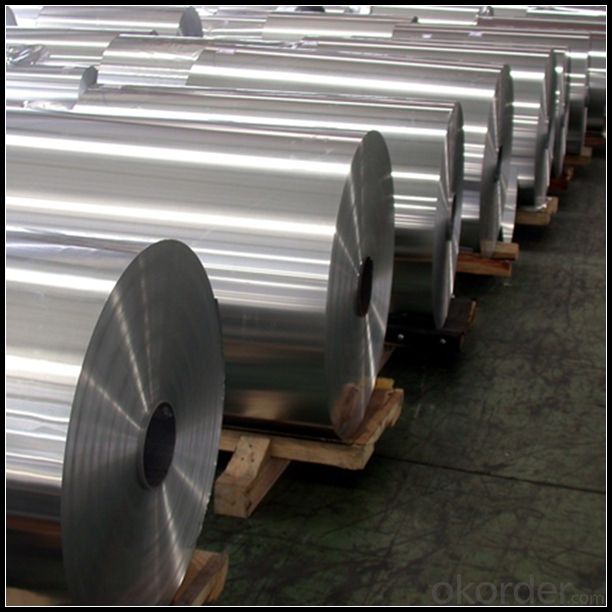
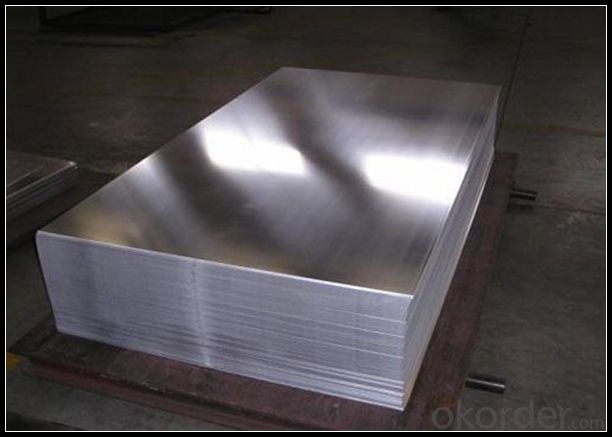
6. FAQ
Q: What is the produce prase? | ||||
A: Normally it would be 40days after received your deposit. | ||||
Q: Can you provide free samples? | ||||
A: Yes, free samples will be sent to you on freight at destination. | ||||
Q: Can I get your latest catalogue? | ||||
A: Yes, it will be sent to you in no time. | ||||
Q: What is the MOQ? | ||||
A: 3 tons | ||||
Q: What are your payment terms? | ||||
A: We accept L/C, D/A, D/P, T/T, West Union,etc. |
- Q: Are there any limitations to the minimum coil width of aluminum coils?
- Limitations exist for the minimum coil width of aluminum coils due to various factors, such as the manufacturing process and equipment used. Generally, the coil width is restricted by the capabilities of the rolling mill or other processing machinery. The minimum coil width is typically determined by the size of the rolls or mandrels utilized during production. If the coil width becomes too narrow, it can lead to stability and integrity issues, making handling and transportation more challenging. Furthermore, a narrower coil width may impact the overall efficiency of the manufacturing process. Hence, it is crucial to take these limitations into account when establishing the minimum coil width for aluminum coils.
- Q: I have my brother's old wooden crutches but i see everyone using aluminum and i have the option to get aluminum ones. Is there any reason why they'd be better then my wooden ones?
- crutches are crutches!
- Q: What is the typical elongation of aluminum coils?
- The typical elongation of aluminum coils can vary depending on the specific alloy and manufacturing process, but it generally ranges from 5% to 30%.
- Q: Can aluminum coils be used for radiation shielding?
- Indeed, radiation shielding can be accomplished using aluminum coils. Owing to its substantial atomic number and density, aluminum is frequently employed as a radiation shielding material, demonstrating remarkable proficiency in absorbing and dispersing radiation. It effectively safeguards against an extensive spectrum of radiation varieties, encompassing gamma rays and X-rays. Moreover, aluminum possesses the advantageous qualities of being lightweight and pliable, rendering it convenient to manipulate and appropriate for a wide range of situations necessitating radiation shielding. These encompass domains such as medical imaging, nuclear power plants, and the aerospace industry.
- Q: where's the best place to look for aluminum not cans
- TRY A LOCAL HARDWARE STORE
- Q: What are the different coil packaging materials used for aluminum coils?
- There are several different coil packaging materials commonly used for aluminum coils. These materials are designed to protect the coils during transportation and storage, ensuring they arrive at their destination in good condition. One of the most popular coil packaging materials for aluminum coils is plastic. Plastic packaging can come in the form of shrink wrap, stretch film, or plastic bands. Shrink wrap is often used to tightly encase the coils, providing a secure and protective covering. Stretch film, on the other hand, is used to tightly wrap the coils together, preventing them from shifting and potentially causing damage. Plastic bands are used to secure the coils together, offering an additional layer of stability. Another commonly used packaging material for aluminum coils is paper. Kraft paper or corrugated cardboard is often used to wrap and protect the coils. This type of packaging provides cushioning and prevents the coils from scratching or rubbing against each other during transit. Paper packaging is also easily recyclable, making it an environmentally friendly option. In addition to plastic and paper, steel strapping is sometimes used to package aluminum coils. Steel strapping offers excellent strength and durability, ensuring that the coils remain securely bundled during transportation. This type of packaging material is particularly useful for heavy-duty applications where extra protection is needed. Overall, the choice of coil packaging material for aluminum coils depends on factors such as the size and weight of the coils, transportation requirements, and the level of protection needed. By using the right packaging materials, aluminum coils can be safeguarded against damage and arrive at their destination in optimal condition.
- Q: What specific features or properties define aluminum coil?
- <p>Aluminum coil is characterized by its lightweight nature, high strength-to-weight ratio, and excellent corrosion resistance. It is non-magnetic, has good thermal and electrical conductivity, and is highly malleable and ductile, making it easy to form into various shapes. Aluminum coil also has a shiny, reflective surface and is recyclable. It is commonly used in construction, automotive, packaging, and electrical applications due to these properties.</p>
- Q: Are aluminum coils suitable for architectural sunshades?
- Yes, aluminum coils are suitable for architectural sunshades. Aluminum is a popular material choice for sunshades due to its lightweight nature, durability, and corrosion resistance. Aluminum coils can be used to create various shapes and designs for sunshades, allowing for flexibility in architectural design. Additionally, aluminum can be easily fabricated and installed, making it a practical choice for architectural projects. Furthermore, aluminum has excellent thermal properties, allowing it to effectively reflect heat and reduce solar gain, which can help improve energy efficiency in buildings. Overall, aluminum coils are a suitable and versatile option for architectural sunshades.
- Q: And if the deodorant companies know that aluminum causes cancer, why do they keep putting it in their products?
- It helps keep you from smelling.
- Q: Can aluminum coils be used in the production of aluminum foil?
- Indeed, the utilization of aluminum coils is viable in the manufacturing of aluminum foil. Normally, aluminum coils are generated through the process of rolling aluminum ingots between substantial rollers, resulting in the formation of slender and level sheets. Subsequently, these coils can be subjected to additional procedures to yield aluminum foil. The coils are unwound and conveyed through a sequence of rolling mills that gradually diminish the thickness of the metal until the desired gauge for aluminum foil is attained. Following this, the foil is sliced into sheets or wound into rolls for the purpose of packaging and distribution. Aluminum coils offer a cost-efficient and effective means to generate substantial quantities of aluminum foil.
Send your message to us
Hvac Coating Aluminum Coils - Aluminium Coil Sheet for Building Use in Different Alloys
- Loading Port:
- Shanghai
- Payment Terms:
- TT OR LC
- Min Order Qty:
- 20 m.t
- Supply Capability:
- 10000 m.t/month
OKorder Service Pledge
OKorder Financial Service
Similar products
Hot products
Hot Searches
Related keywords



